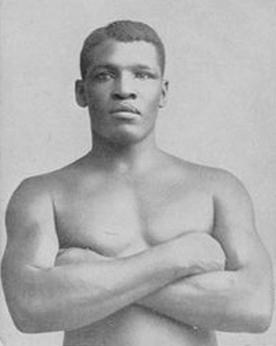I've been doing some reading, and it seems he was a very skilled heavyweight for his time period. After he fought Corbett, and gave better than he got, it is said he was avoided even more by white opposition. John. L Sullivan, who didn't want to fight any black fighter is said to have taken extra precautions in avoiding a fight with Jackson.
Do you think, if given a shot, Jackson could have upended Sullivan? I ask because my knowledge of Jackson is very very limited.
Do you think, if given a shot, Jackson could have upended Sullivan? I ask because my knowledge of Jackson is very very limited.





Comment